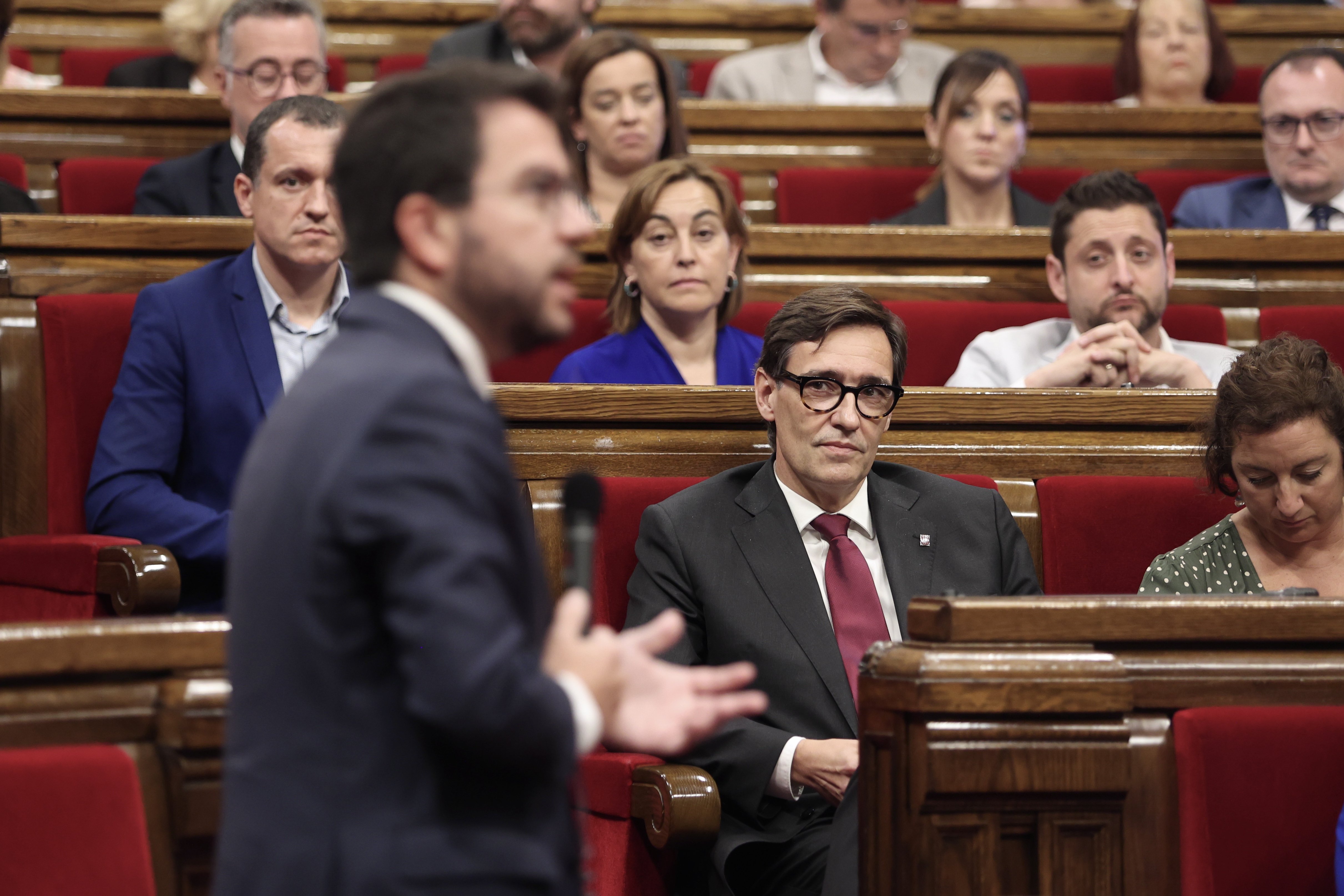The Catalan Socialist Party (PSC) closes the round. The Catalan government met this Monday afternoon with the Socialists to address the Catalan government budget for 2023, in a meeting that lasted an hour and a quarter, and that was marked by a "cordial tone". Despite Salvador Illa's criticism of the Pere Aragonès government in recent weeks, the PSC assessed as "positive" this "first contact" which served to learn the budgetary framework proposed by the economy ministry of the government led by the Republican Left (ERC). "Nonetheless, there is still a long way to go and the accelerator will have to be stepped on hard so that Catalonia can have a new budget within a reasonable time frame", warned Socialist sources, regretting that the executive has refused to be rushed into having the accounts ready on January 1st. Nevertheless, the PSC delegation once again reiterated its willingness to open a "sincere, responsible, realistic and honest" negotiation. For its part, the government tried to downplay the importance of the encounter, framing it in the context of the round of meetings it has conducted with all the possible partners, emphasizing that the priority is to have the support of the pro-independence Junts and the left-wing Comuns.
It was a meeting which, despite being held behind closed doors, did not take place amid the absolute secrecy with which the government has conducted most meetings with the parties in recent weeks. This very morning the Socialist spokesperson, Alicia Tortolero, revealed in a press conference the most important details, such as the fact that it would take place at the Palau de la Generalitat from 4:30pm, and that taking part would be herself, deputy Jordi Riba and the coordinator of the parliamentary group, Nelia Martínez, on behalf of the PSC. For the ERC-led government, as with the two previous meetings with the Comuns and Junts for the budget, was the Catalan presidency minister, Laura Vilagrà, and the economy and finance minister, Natàlia Mas. The Socialists came to the meeting with the desire to "listen" to the executive and learn about its project. "We will go there to find out what this budget framework is, without making any more proposals," explained Tortolero this morning.
The PSC, last on the list
Thus, the Generalitat government has closed its first round of meetings with possible parliamentary partners, help from whom will necessarily be required by ERC to approve the 2023 budget. Pere Aragonès communicated this intention to PSC leader Salvador Illa in their first meeting after the collapse of the Junts coalition, and last Wednesday the minority government started the encounters by meeting with the Comuns. Alternative left party leader Jéssica Albiach was not present, but the meeting was "positive", according to government sources, and was "a first face-to-face contact over the budget and the legislature" of the single-colour ERC executive, said Comuns sources. The party also took the opportunity to reiterate its position on the priority areas for the accounts - taxation, the promotion of renewable energy, a social shield against inflation, and housing.
That same afternoon, Laura Vilagrà and Natàlia Mas sat down with the Junts negotiating team formed by Mònica Sales, Joan Canadell and Jordi Munell in an unusual context, given that the party made a sudden departure from the Catalan executive only a month ago. Since then, ERC has pressured the former partners to facilitate the progress through Parliament of the budget bill, while Junts has not yet revealed what it will do, beyond cooling down the expectations. The party's intention was to find out the political orientation of a budget that had originally been drawn up by its own minister, Jaume Giró, and later retouched by ERC, although the former economy head did not participate in the meeting, in order to weaken the Junts negotiators. The party also wanted to know what support the Catalan government had for passing the buget, and before entering the meeting it was able to learn that the CUP had once decided to position itself in the opposition and would not negotiate with the executive.

